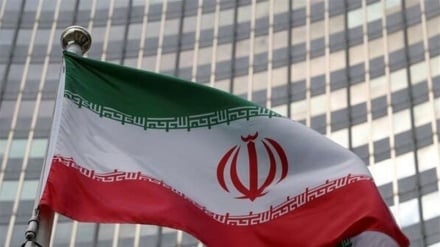Resistance leaders exposed to threat and martyrdom (2)
Welcome to the second and last part of this program. Leaders of the front of truth and struggle against oppression and arrogance are present in various parts of the Islamic world to defend the rights of the oppressed and downtrodden people.
Although such leaders are small in number, their influential and blessed existence cannot be removed by imprisonment, stripping nationality and martyrdom.
Last time we said that a while ago, the nationality of the religious leader of uprising of Bahraini people was stripped by the despotic Al-Khalifa regime and he faces threat and pressure. Al-Wefaq National Islamic Society, the largest opposition party in Bahrain, was dissolved and its leader Sheikh Ali Salman was sentenced to 9 years imprisonment. But strictness, harassment and even killing the leaders of the front of truth is not a new thing. We mentioned some of the popular leaders who faced many hardships such as Imam Khomeini and some others who were martyred like Sheikh Ahmad Yassin and Dr. Fat-hi Shaqaqi the leaders of Islamic Resistance of Palestine and Sheikh Ragheb Harb, Seyyed Abbas Musavi and Emad Moghniyeh the leaders of Lebanese Hezbollah. Now we introduce some other standard-bearers of anti-oppression struggle. Imam Musa Sadr was one of the prominent theologians who supported the oppressed and downtrodden in Lebanon. He also strongly backed Palestine Resistance Movement and was one of the main enemies of the usurper Zionist regime. Imam Musa Sadr was the harbinger of unity among followers of various religions. These characteristics sufficed to make him a prominent popular leader who was the target of the oppressors’ wrath. In late August 1978, during a trip to Libya he was abducted by spying apparatuses and there is no precise information about his whereabouts.
Among other leaders of resistance against oppression and dictatorship was Imam Musa Sadr’s cousin Ayatollah Seyyed Mohammad Baqer Sadr. He was an outstanding religious leader and source of emulation of the Iraqi Shias but his education did not prevent him from struggling against the dictatorial regime of Saddam. During the exile of Imam Khomeini to Iraq, Ayatollah Sadr got familiar with his revolutionary ideas and supported the Islamic revolution. Saddam who feared the popularity of Ayatollah Mohammad Baqer Sadr among people and his opposition to Iraq’s Baathist party issued the order of killing him and his sister Bentul Hoda and on April 7, 1980 they were martyred under severe torture.
As for Pakistan, it is a country which was established in the name of Islam in 1947, but no Islamic laws have ruled it yet. So far several personalities have attempted for materializing this goal such as Allammeh Seyyed Aref Hussein al-Husseini. Impressed by the ideas of Imam Khomeini (God’s mercy upon his soul), he worked for unity between Shias and Sunnis and eradication of poverty, corruption and despotism in Pakistan. The other characteristic of this great religious scholar was opposition to the US and Saudi interventionist policies in his country. This popular and revolutionary posture provoked infuriated the meddling regimes and their domestic Takfiri minions. On August 5, 1988, Allameh Aref Husseini was shot and martyred.
In a country like Arabia where oppression, corruption and discrimination are promoted discontent and protest of people is something natural and there are leaders who guide the people’s uprising despite immense threats and dangers. Ayatollah Sheikh Nimr Baqer Al-Nimr was one such leader. He called for Shias’ equal rights with others, end of Saudi domination and establishment of civil freedoms and was arrested several times. But in July 2013 he was attacked by the Saudi agents and transferred to an unknown place and he was executed on January 2, 2016. This barbaric act of Saudi regime triggered wide-scale reactions in Islamic states.
Seyyed Hussein Badreddin Huthi is another standard-bearer of uprising against arrogance and dictatorship. In Yemen he invited the people to rise against the former despotic government and founded Ansar Allah Movement in the north. He severely opposed the US and the Zionist regime and embarked on increasing the people’s awareness. The forces under the rule of Yemen’s former regime after a few months martyred Hussein Badreddin Huthi and a number of his fellow combatants in 2004. But his martyrdom did not mean the end of Yemeni people combat and the campaign continued under the leadership of Seyyed Abdul-Malek Badreddin Huthi the brother of their late leader. With the wise guidance of Yemen’s Ansar Allah movement, Abdul-Malek Huthi resisted against the attacks of the former regime’s forces and its allies (the US and Saudi Arabia). He even increased the influence and presence of this popular movement in Yemen. Since March 2015 when the Saudi army started its attack on Yemen, Ansar Allah movement was the axis against this savage attack. For this reason, the Saudi planes have several times attempted to martyr Abdul-Malek Huthi but they have failed.
One of the most important leaders of Islamic resistance against oppression and dictatorship in Africa is Sheikh Ibrahim Zakzaky the leader of Nigeria’s Muslims. He is the defender of the deprived and oppressed Nigerian people and promoter of Islamic ideas as well as the culture of the holy Prophet’s Ahl al-Bayt and during the past three decades he has managed to guide many people in Nigeria. This spectacular success caused the wrath of the Nigerian government and its supporters in a way that it imprisoned Sheikh Zakzaky several times. The Nigerian army in a barbaric attack on his house on December 13, 2015 killed over 1000 Shias and imprisoned Sheikh Zakzaky after injuring him. The Sheikh’s three sons were martyred. Although Ibrahim Zakzaky is now injured and imprisoned, his path is continued strongly by his followers.
Truth-seeking leaders have deep belief in the rich and revolutionary teachings of Islam and they practice them first in their life and then in the community. They deeply believe that these life-inspiring teachings bring prosperity and happiness for person and society. The belief of these outstanding personalities in Islam increases their reliance on God in various problems. For this reason, although the leaders of Islamic resistance are under severe pressures and threats, they just seek help from God and they never compromise with the people’s enemies. They have deep faith in God’s word in the holy Quran which says:
“O you who have faith, if you help Allah, He will help you and make your feet steady. “
The Islam learnt and propagated by the leaders of anti-oppression campaign is not only free from any prejudice, backwardness and excommunication (takfir) but it stands against this distorted narrative of Islam. Instead of fighting Muslim brethren, the leaders invite them to unity and cooperation against enemies. Only when those deceived by the devil fight Muslim freedom-seekers in the name of Islam, they are forced to defend themselves.
However leaders of truth and freedom have always regarded the US and the Zionist regime as the symbols and absolute manifestations of Global Arrogance. That’s why the Global Arrogance has martyred several leaders and influential figures of the front of truth and justice-seeking.
These characteristics have made the leaders of resistance popular to people. They know that under the leadership of such persons, they can fight the enemies and pin hope in God. Reciprocally the leaders of truth and justice apply all their capabilities for defending people and do not fear martyrdom. They do not want people for gaining fame, wealth and high posts but they help them to achieve prosperity and happiness in this world and the hereafter.
FK/RM/ME


